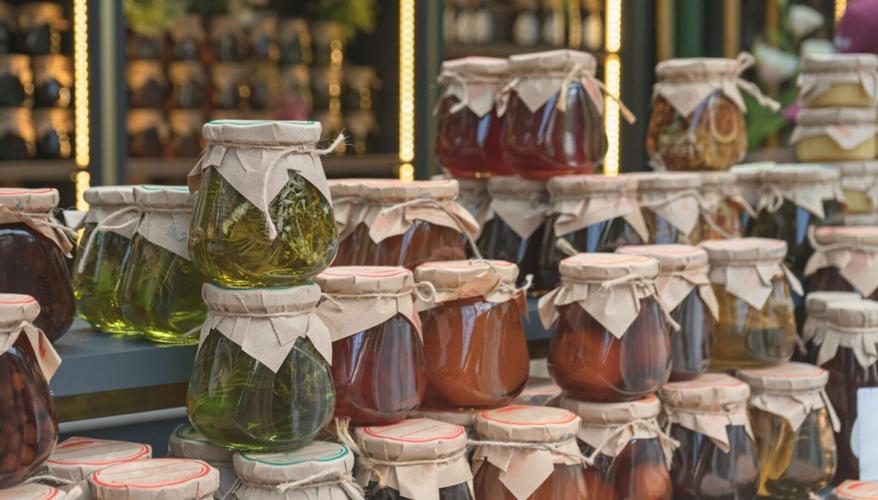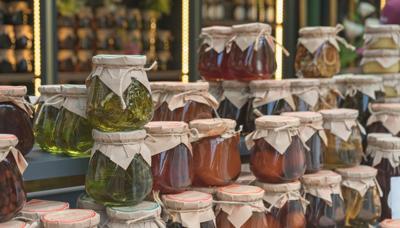Yes, your grocery bill is getting more expensive. Grocery prices have increased by 25% since 2020, and food costs are projected to continue climbing over the coming year.
Meat, poultry, and fish have increased by6.1% over the last twelve months. Eggs are still more than a dollar higher than they were last year. Coffee, rice, even bananas– everything costs more.
Consumers are turning to food preservation methods, such as canning, to help offset costs and reduce food waste. Unlike freezing, which requires enough freezer space (and hoping the power doesn’t go out), canning allows food to be stored for the long term.
Interest in canning spiked in 2020 thanks to supply chain issues and extra time at home. For those limiting their trips to the grocery store, buying food in bulk and preserving it helped offset food costs.
Lockdown may be over, but the canning obsession has stuck around. When the average grocery bill for a family of four is $1400 a month, the idea of buying (or growing) tomatoes in bulk and canning them yourself starts to make a lot more sense.
Safety Matters
It’s tempting to follow passed-down, unverified recipes for canning. But botulism doesn’t care about family traditions.
It’s a potentially deadly toxin that thrives in the low-oxygen environment of improperly canned foods. It’s odorless and tasteless, making it undetectable by taste or smell.
The good news is that safe canning isn’t complicated. Use clean, sterilized jars with new seals. If you plan to can low-acid vegetables or meat, you’ll need to use a pressure canner, as a regular pot won’t reach the necessary high temperature.
It’s also important to follow recipes to the letter, as the acid levels and processing times have been carefully calculated for safety.
Canning Recipes
With summer produce in full swing, these are the canning recipes to get you started– and maybe save you from sticker shock next time you’re at the grocery store.
Homemade Canning Salsa

Photo courtesy of Alexandra Caspero
This salsa has been verified for safety and is a great way to use garden tomatoes, bell peppers, and jalapenos.
Paste tomatoes are more fleshy and contain less juice and seeds, making them perfect for salsa. Check your local farmer’s market for canning tomatoes; many will sell a bushel of canning or paste tomatoes for around $20-25 a box.
Recipe: Homemade Salsa for Canning
Low-Sugar Strawberry Jam

Photo courtesy of Alexandra Caspero
Only one cup of sugar is needed for this low-sugar strawberry jam, significantly less than most jam recipes. The secret is using special no-sugar-needed pectin, which allows the jam to thicken without cups and cups of added sugar.
Recipe: Low Sugar Strawberry Jam
Dill Pickles

Photo courtesy of Alexandra Caspero
With a jar of artisanal cucumbers averaging $8, canning your own is an easy way to save money. And, it’s easier than one may think.
You don’t need special equipment for this recipe, just a large pot, vinegar, pickling spice, and canning salt.
Recipe: Canning Recipe for Dill Pickles
Hot Pepper Jelly

Photo courtesy of Alexandra Caspero
Hot pepper jelly is fantastic on sandwiches, mixed into hummus for a sweet and spicy appetizer dip, or served over cream cheese with crackers.
It’s also great as a glaze for grilled meats or for use as a base for a marinade.
Recipe: Hot Pepper Jelly for Canning
Candied Jalapenos

Photo courtesy of Alexandra Caspero
Sweet and spicy, these jalapenos are a must-have on nachos, burgers, fajitas, and sandwiches. With only six ingredients, these candied jalapenos can be enjoyed now or water-bath canned.
Especially for home gardeners, this canning recipe is a great way to use any bumper crop of peppers.
Recipe: Candied Jalapenos
Low Sugar Blackberry Jam

Photo courtesy of Alexandra Caspero
Make this low-sugar blackberry jam recipe to enjoy the fresh taste of blackberries all year with a fraction of the sugar in traditional jam recipes and no artificial sweeteners.
Other berries, such as boysenberries and raspberries, can be substituted.
Recipe: Low Sugar Blackberry Jam
Hot Peppers in Oil

Photo courtesy of Alexandra Caspero
These spicy peppers are the secret ingredient for your next sandwich (and Greek salad!) and make for excellent homemade gifts.
Use Hungarian wax, serrano, jalapeno, and/or banana peppers. As they are canned in oil, finished jars will need to be stored in the fridge for safety.
Recipe: Hot Italian Peppers in Oil
Tomato Sauce

Photo courtesy of Alexandra Caspero
Healthier (and cheaper!) than jarred tomato sauce. This recipe preserves the flavor of fresh tomatoes without the addition of vinegar or lemon juice. Because of this, you’ll need a pressure canner to make this recipe safely.
Alternatively, if you prefer not to use a pressure canner, you can prepare the sauce and store it in the freezer.
Recipe: Canning Spaghetti Sauce



















